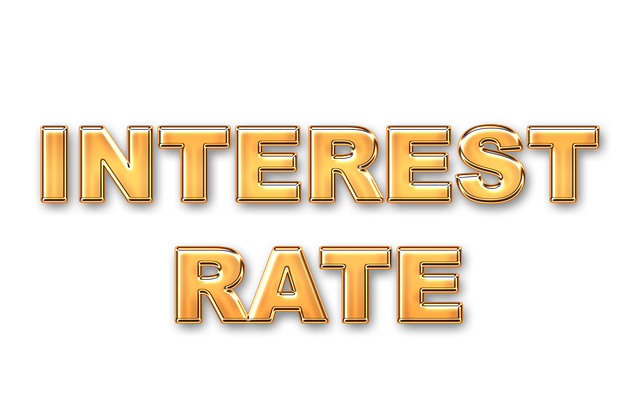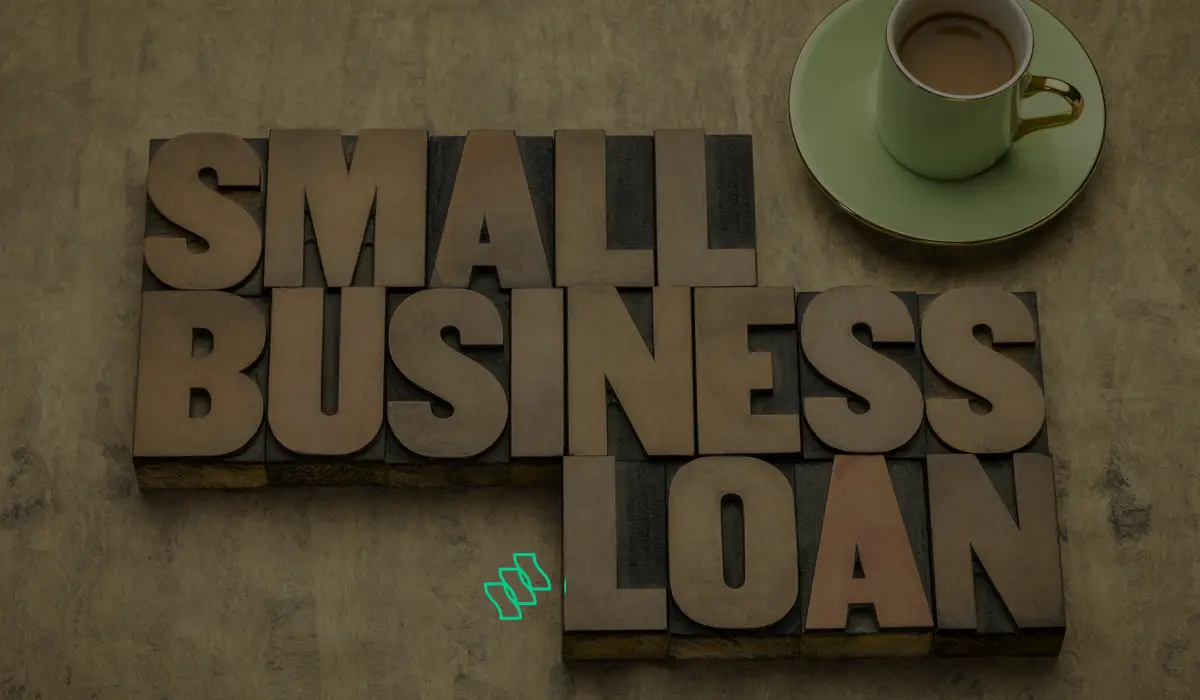Starting or growing a small business often requires additional funding or working capital. For many small businesses, a common business loan requirement is the ideal way to get their cash flow.
But before you go ahead and apply, it’s important to understand exactly what do you need for a small business loan. Whether you’re just starting or looking to expand, this guide will walk you through the common business loan requirements and everything you need to know.
Lenders consider several factors when deciding whether to approve your business loan application. From your personal credit score to your business plan, getting a small business loan isn’t just about needing the money – it’s about proving that you can pay it back.

- Amount = $5,000 to $500,000
- Loan Term = 4 to 24 months
- Interest Rate = 1.11%
4.8
editorial team. We score based on factors
that are helpful for consumers, such as
how it affects credit scores, the rates and
fees charged, the customer experience,
and responsible lending practices.
- Min. Amount = $10,000
- Max Amount = $500,000
- APR = Factor rate starting at 1.11%
4.8
editorial team. We score based on factors
that are helpful for consumers, such as
how it affects credit scores, the rates and
fees charged, the customer experience,
and responsible lending practices.
Best for large business loans

- Loan Amount = $25,000 - $3,000,000
- $10,000 in Monthly Rev
- No minimum credit score requirement
4.9
editorial team. We score based on factors
that are helpful for consumers, such as
how it affects credit scores, the rates and
fees charged, the customer experience,
and responsible lending practices.
Best for large business loans

- Min Amount = $5,000 - 1,500,000
- APR range Not disclosed
- Minimum Credit Score 570
4.7
editorial team. We score based on factors
that are helpful for consumers, such as
how it affects credit scores, the rates and
fees charged, the customer experience,
and responsible lending practices.
Best for Small business loans

- Min Credit Score = 620
- Loan Amount = $10K-$5M
- Term = 6 months - 10 years
- APR = Variable
4.8
editorial team. We score based on factors
that are helpful for consumers, such as
how it affects credit scores, the rates and
fees charged, the customer experience,
and responsible lending practices.

- Check Your Eligibility
- Get $10K to $2M
- 24/7 Support
4.8
editorial team. We score based on factors
that are helpful for consumers, such as
how it affects credit scores, the rates and
fees charged, the customer experience,
and responsible lending practices.

- Amount = $10,000 to $1,000,000
- Factor Rate = Starting at 1.24
- Term = 2 to 12 months
4.7
editorial team. We score based on factors
that are helpful for consumers, such as
how it affects credit scores, the rates and
fees charged, the customer experience,
and responsible lending practices.
In this article, we will break down the key requirements for a small business loan so you’re fully prepared when it’s time to apply. We’ll cover everything from common small business loan requirements to understanding your cash flow, and we’ll look at how factors like credit scores and collateral requirements impact your small business loan requirements and approval chances.

1. Personal Credit Score: Why It Matters
One of the first things most lenders will check when reviewing your small business loan application is your personal credit score. Even though you’re applying for a small business administration-only loan, your credit history can give lenders an idea of how responsible you are with finances.
Most lenders, especially traditional lenders like banks and credit unions, will want to see at least a credit score in the mid-to-high 600s. If your personal credit score is lower, this could negatively impact your business loan applications and approval odds. Some online lenders, however, may be more lenient, especially if you can provide collateral or show strong business cash flow.
2. Business Credit Score: Building Trust with Lenders
Just as your personal credit score is crucial, so is your business credit score. Lenders will review your personal and business credit scores to understand how reliable your business has been in managing debts and payments.
If you haven’t already established a business credit score, getting approved for a small business loan may be difficult. This is why many business owners work on building their business credit scores early on by establishing their accounts payable and trade lines with suppliers or using a business credit card.

3. Business Plan: Mapping Out Your Success
A solid business plan is another key element for securing a small business loan. Many lenders require you to provide a detailed business plan, especially if you’re applying for larger loan amounts. This plan should clearly show how you plan to use the loan funds, your target market, your business strategy, and how you intend to pay back the loan.
Having a well-thought-out business plan can help reassure lenders that you’ve done your homework and are serious about your business’s success. It also allows lenders to understand how profitable your business can be, which makes it easier to approve your loan.
4. Cash Flow: Can You Manage Your Finances?
Lenders want to know that you have enough cash flow to pay back the loan on time. Cash flow refers to the money that comes into your business from sales or services and how it moves out of your business to pay for expenses.
If your cash flow is strong, lenders may feel more confident that you will be able to make your loan payments. Lenders often ask for bank statements or profit and loss statements to check your cash flow. Some lenders require businesses to have a certain debt service coverage ratio, which is a measure of how well your business can cover its debt payments.
5. Collateral Requirements: Securing Your Loan
In many cases, lenders will require you to provide collateral when applying for a small business loan. Collateral could be a business asset, such as equipment or real estate, that the lender can take if you fail to repay the loan. This helps lenders reduce their risk, especially if your credit score or business finances aren’t perfect.
Not all loans require collateral. Some online lenders and loan products, such as loans such as unsecured term loans or personal loans for business use, might not ask for collateral or secured loan. However, keep in mind that secured loans tend to have better interest rates and loan terms.

6. Profit and Loss Statements: Showing Your Business’s Health
Profit and loss statements (P&L) are an essential part of your loan application, as they show your business’s financial performance over time. These statements highlight your business’s income, costs, and profits, helping lenders understand whether your business is profitable and sustainable.
Lenders use P&L statements to assess your business’s risk and determine whether you’re likely to repay the loan. If your P&L statements show consistent profitability, this can improve your chances of getting loan approval.
7. Annual Revenue: How Much Is Your Business Making?
Many lenders will ask for your business owner and annual revenue when applying for a small business loan. Your business’s annual revenue gives lenders an idea of how much money your business owner brings in each year.
Lenders often have minimum revenue requirements, so it’s important to know where your business stands before applying. Businesses with higher annual revenue are typically viewed as less risky and are more likely to qualify for larger loan amounts.

8. Debt to Income Ratio: How Much Debt Do You Have?
Another financial metric lenders use is the debt to income ratio, which compares your business’s total debt to its total income. A high debt to income ratio may suggest that your business has too much debt and could struggle to take on more, making it riskier for lenders to approve your business line a loan.
Having a lower debt to income ratio shows lenders that you can manage your current debts while taking on new loans, which is important for loan approval.
9. Loan Amount: How Much Do You Need?
It’s important to know how much you need before you apply for a small business loan. Asking for too little might leave you short on funds, while asking for too much can make lenders wary. Be realistic about your requested own business loan requirements and amount, and make sure it’s based on your actual own business financing needs.
Providing financial projections for term loans and showing how you plan to use the loan funds can help convince lenders that you’re borrowing the right amount borrowed funds for your business.
10. Lender Types: Traditional vs. Online Lenders
When considering a small business loan, you have various lender options. Traditional lenders, such as banks and credit unions, tend to have stricter requirements but offer competitive rates and terms. On the other hand, online lenders typically have faster approval times and more flexible on small business loan requirements, but may charge higher interest rates.
It’s important to research both traditional and online lenders to find the best option for your business. Some small businesses prefer the convenience of online lenders, while others value the lower interest rates of traditional lenders.

11. Loan Application Process: What to Expect
The small business loan application process varies depending on the lender, but it typically involves providing detailed information about your business, including your business plan, financial statements, and tax returns.
You’ll also need to provide personal information, such as your social security number, to allow the lender to run a credit check. Be prepared for the lender to ask for additional documents, such as bank statements and accounts receivable, which vary depending on the loan type.
12. Payment History: Building a Good Track Record
Your payment history plays a significant role in determining whether you’ll get approved for a loan. Lenders will look at both your other personal loans and your other business loans and debt payment history to see if you’ve consistently made payments on time.
Having a strong payment history can boost your chances of getting a loan with reasonable terms. On the other hand, if you have a history of missed or late payments, this could negatively on personal credit scores and impact your loan approval.
13. Business Assets: Using What You Own
Some lenders may ask for a list of your business assets, such as equipment, inventory, or real estate. These assets can serve as collateral for secured loans and can also give lenders a sense of your business’s overall value.
If your business has valuable assets, this could help improve your loan terms or interest rates, especially if your credit score isn’t perfect.

14. Personal Guarantee: What It Means for You
A personal loan or personal guarantee, is a promise to provide financial, that you’ll repay the loan using personal assets if your business fails to do so. Many lenders require personal guarantees, especially for small business loans, as it reduces the risk to the lender.
Providing a full personal finance personal guarantee can improve your chances of loan approval, but it also means that if your business doesn’t succeed, your own personal finance finances could be at risk.

- Amount = $5,000 to $500,000
- Loan Term = 4 to 24 months
- Interest Rate = 1.11%
4.8
editorial team. We score based on factors
that are helpful for consumers, such as
how it affects credit scores, the rates and
fees charged, the customer experience,
and responsible lending practices.
- Min. Amount = $10,000
- Max Amount = $500,000
- APR = Factor rate starting at 1.11%
4.8
editorial team. We score based on factors
that are helpful for consumers, such as
how it affects credit scores, the rates and
fees charged, the customer experience,
and responsible lending practices.
Best for large business loans

- Loan Amount = $25,000 - $3,000,000
- $10,000 in Monthly Rev
- No minimum credit score requirement
4.9
editorial team. We score based on factors
that are helpful for consumers, such as
how it affects credit scores, the rates and
fees charged, the customer experience,
and responsible lending practices.
Best for large business loans

- Min Amount = $5,000 - 1,500,000
- APR range Not disclosed
- Minimum Credit Score 570
4.7
editorial team. We score based on factors
that are helpful for consumers, such as
how it affects credit scores, the rates and
fees charged, the customer experience,
and responsible lending practices.
Best for Small business loans

- Min Credit Score = 620
- Loan Amount = $10K-$5M
- Term = 6 months - 10 years
- APR = Variable
4.8
editorial team. We score based on factors
that are helpful for consumers, such as
how it affects credit scores, the rates and
fees charged, the customer experience,
and responsible lending practices.

- Check Your Eligibility
- Get $10K to $2M
- 24/7 Support
4.8
editorial team. We score based on factors
that are helpful for consumers, such as
how it affects credit scores, the rates and
fees charged, the customer experience,
and responsible lending practices.

- Amount = $10,000 to $1,000,000
- Factor Rate = Starting at 1.24
- Term = 2 to 12 months
4.7
editorial team. We score based on factors
that are helpful for consumers, such as
how it affects credit scores, the rates and
fees charged, the customer experience,
and responsible lending practices.
15. Interest Rates: Finding the Best Deal
Interest rates are a critical factor in any business loan. The interest rate determines how much extra you’ll pay in addition to the loan amount over time. Generally, small businesses with better credit scores and financials can secure lower interest rates.
It’s important to shop around and compare rates from various lenders to ensure you’re getting the best deal possible.
Getting a small business loan can seem complicated, but with the right preparation, you can improve your chances of securing the funding you need. By understanding what lenders are looking for – from your personal credit score to your business plan – you can make the loan application process smoother and increase your chances of success.
Remember, every lender has slightly different eligibility requirements too, so it’s important to do your research and make sure you meet the specific criteria for the lender you choose.

Frequently Asked Questions
what do you need for a small business loan (credit score)?
Most lenders prefer a credit score of 600 or higher, but online lenders may have more flexible requirements.
Can I get a business loan with bad or excellent credit score?
It’s possible, but you may need to provide collateral or work with alternative lenders such loans those who specialize in bad credit loans.
What is the debt service coverage ratio?
The debt service coverage ratio measures how well your business can cover its debt payments. Lenders often require a ratio of 1.25 or higher.
Do all small business loans still require collateral?
No, some loans, such loans such as unsecured loans or personal loans for personal finance or small business loans for use, do not require collateral, but they may have higher interest rates.
How long does it take to get a small business loan?
It depends on the lender. Traditional banks may take weeks, while online lenders can approve loans in a few days.


 Read More
Read More 





One Response